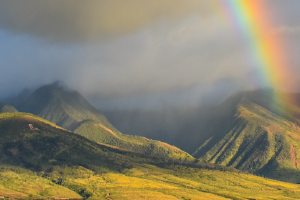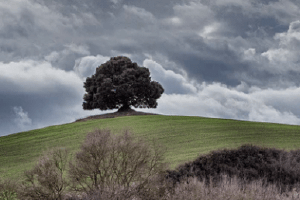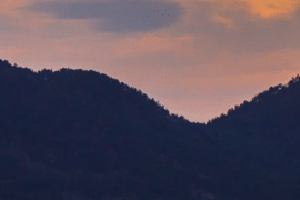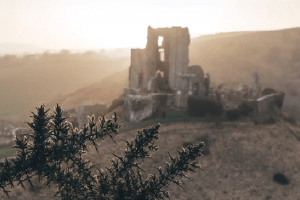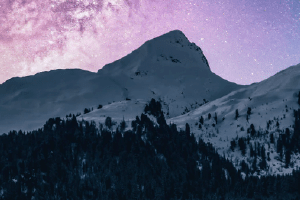Welcome to the Salt and Sage Books Spotlight series! We believe that by honoring each other’s voices, we’re able to turn creativity into community, and change the world through story.
In this spotlight series, we welcome you into our creative community by inviting you to meet our editors and expert readers, and to hear a little of their own story, in their own words.
What do you do with Salt and Sage?
I’m a sensitivity reader. I read for non-binary, trans-masculine and bisexual identity, as well as some physical and mental health issues.
I also do expert reads for Anthropology and Film/TV Production, based on my education and work experience.
What drew you to Salt and Sage?
I saw a post from Salt and Sage on Twitter that piqued my interest. Once I took a look at their website, I felt right at home!
Where did you grow up, where do you live now, and where do you wish you could live?
I grew up in Courtenay, on Vancouver Island, which is just off the coast of B.C. I feel lucky to have grown up in such a naturally beautiful place. The forests and beaches on the island are next-level.
I live in Vancouver, B.C. My favorite things about Vancouver are the ocean proximity, and the fact that every part of the city feels like a different small neighbourhood. There’s always something new to explore here.
I’ve always loved New York - I think it has the same appeal as Vancouver: a new neighbourhood around every corner. Other than that, I’d be happy to hide away on B.C.’s Sunshine Coast, or in Tofino.
How do writing and editing figure into your daily life?
Usually it starts with a cup of tea and some breakfast. I like to start by watching an episode of t.v./listening to a podcast before I get down to it, but after that I’ll pull up my current project and dive.
The most important part is the music: I curate a specific playlist for every project I work on, and it helps keep me on voice.
When writing prose, I try to get through at least one scene a day. On screenplays I usually have a page target, and if I’m editing/reading I’ll try to plan out checkpoints I want to reach.
Once I’m done with creative work, I’ll keep up with my admin notes/emails and chill out for the evening!
What was the first moment you wanted to be a writer?
This may seem a little a late in life, but I realized I wanted to be a professional writer about half-way through university. I had always loved writing, but my first few writing classes at college were really harsh and crushed my self-confidence. I switched to stage/screen classes and a monologue of mine was accepted into the school’s drama festival. Sitting in the audience, I watched as the viewers shifted from laughing to crying over the course of the monologue, and it made me want to chase that feeling of being able to conjure emotion in readers/viewers.
What is your writing process like?
I like to have a loose structure of what I know needs to happen to accomplish the main beats of the plot, which become more detailed and specific as I work my way from scene to scene. I think a lot of my writing process for prose comes from my experience as a screenwriter, and the stages of beat-sheet, outline, & treatment that are traditionally used in film & television production.
What do you love about writing?
I love the exhilaration of a breakthrough, and how it often feels almost inevitable. One moment you’re stumped on how a plot thread should proceed and the next moment, post-realization, it really couldn’t have been any other way.
What scares you about writing?
Usually, when I’m writing I’ll try to get to the bottom of my own feelings or experiences in order to understand how to apply that to the story, and it often stresses me out. I truly believe that the most effective and affecting story is the one that contains the personal truth of the author, and it’s scary to have to dig inside yourself and figure out how to apply those answers to the text.
What do you do when you’ve got a writing/editing deadline–any special strategies?
Gotta pop on those headphones and get the playlist going! I have a lot of attention issues, but listening to music tends to peel away those distracting surface-level thoughts and let me focus on the writing. I’ll also usually try to institute some kind of work/reward system: if you can edit these first five chapters, then you can go get a coffee, and dig into the rest after.
What’s your favorite resource for editing?
Definitely Thesaurus.com. I am often guilty of repetitive word use in my own initial drafts, and sometimes it helps to just have a bank of options on stand-by.
What writing or publishing trends do you like?
I’m an absolute sucker for a queer re-telling of a well-known property, especially Shakespeare’s plays. There is something wonderful about taking a story you already love and enjoy, and making it resonate even more deeply. Plus, it’s just good fun!
What do you hope is the next trend in publishing?
I hope the next big change in the publishing industry involves those at the top of the ladder putting their money where their mouths are in terms of diversity, and hiring some of the incredible queer people of color in the industry into positions where they can tip the scales further and provide opportunities to their peers. Much like the film/tv industry, the recent strides towards diversity are a positive sign - but until the decision-makers aren’t primarily white & cis-het, there’s still a lot of work to be done.
What are you passionate about?
I’m a little bit obsessed with collaborative story-telling. There are so many incredible actual-play RPG podcasts where the hosts tell stories together with the help of role-play systems. A lot of the time I am absolutely blown away by how perfectly they come together despite being subject to the luck of the dice. Two of my favorites are Friends At The Table and The Adventure Zone.
What’s your favorite quote?
I don’t think I have a favorite quote, but I am forever looking to the poetry of Dorothy Parker for advice.
Is there something you don’t want to have to say as a sensitivity reader, but that you feel people need to know?
I think, especially when it comes to sensitivity reading, what I’d love people to know is that, even though you can have amazing intent when writing a character outside your personal experience, a major pitfall is that a lot of information we absorb is based on the tropes and cliches presented to us through media.
For example, the media we take in about trans people only shows us a very slim and repetitive set of experiences, and there’s little impetus to look outside of that when you then turn around and include trans characters in your own work.
After all – what we see and hear in the zeitgeist is what we imagine that experience to be. However, there are infinite ways to experience and process a trans identity, just as there are infinite ways to live and process any marginalized identity.
When we, as sensitivity readers, point out these tropes and cliches, we’re asking you to consider whether that’s really part of your narrative, or just part of the expected narrative you have for that particular identity.







